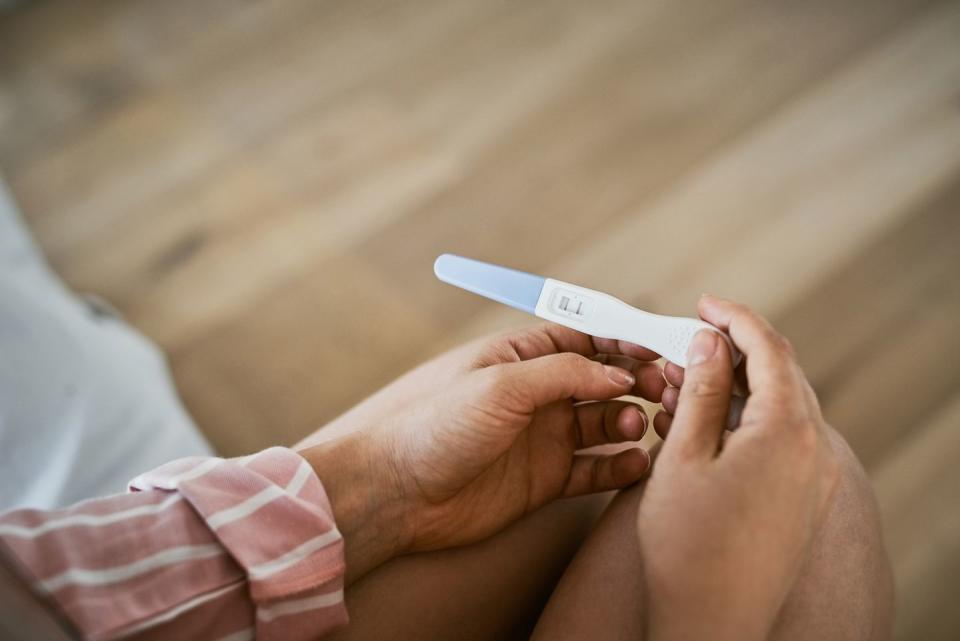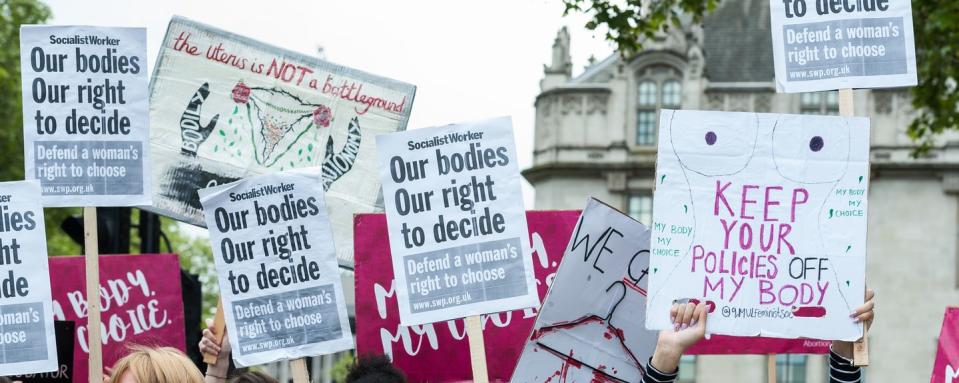The majority of women want to make at-home abortions legal

A ground-breaking new study of over 50,000 medical abortions has found that the at-home option (introduced temporarily during the pandemic, for those up to 10 weeks pregnant) was not only safe and effective, but allowed more people to easily access the healthcare they required. The results of the study have been released during an especially poignant time, as the government is currently examining whether or not to make at-home abortions a permanent option in England.
The study looked at abortions carried out in England, Scotland and Wales, both before and after the pandemic, and researchers, from the British Pregnancy Advisory Service (BPAS), MSI Reproductive Choices UK and the University of Texas at Austin, say their aim was to compare the data and see how the telemedicine service compares to the services previously available.
Further research (involving a smaller sample of 1,243 people), published this week, from MSI Reproductive Choices UK and the BPAS, published in the BMJ's Sexual and Reproductive Health Journal, also shows that 83% said they preferred the 'telemedicine' method.
This method sees patients have a remote consultation and the necessary medication for a termination being posted out. Telemedicine removes any obstacles involving travel, or the risk of not making it home in time before the effects of the medication take hold. A further 66% of this group said that were coronavirus not an issue, that they would make the same decision to undergo an at-home abortion again. All involved reported having no problems with finding a private space to carry out the phone consultations in.

Another positive to being able to access a 'pills in the post' abortion saw waiting times drop from 10.7 days, to 6.5 days – no doubt lessening some of the anxiety that some patients may have experienced during this potentially difficult time. No cases of significant infection were reported, and contrary to misleading claims, no person has died from having an early medical abortion at home.
Professor Dame Lesley Regan, Chair of the Royal College of Obstetricians and Gynaecologists abortion taskforce, said that the study proves "there is no medical reason not to make the current telemedicine service permanent".
Regan continued, "One argument I hear time and again is that changing abortion laws makes it 'easier' to get an abortion and will lead to more women choosing to have one. Indeed, some may believe that keeping abortion difficult to access, more unpleasant to undergo and more dangerous, will persuade women to continue their unwanted pregnancy."
She also added, "[However], you just have to look around the world to recognise this claim is invalid. Everyday scores of desperate pregnant women put themselves in extreme danger by undergoing illegal and unsafe abortion. Reducing access to abortion doesn’t make it any less common, but it does make it less safe."

At-home abortions also mean that patients seeking treatment will no longer have to worry about any uncomfortable and upsetting interactions with pro-life protestors, who are known to gather outside clinics. The Back Off campaign (which currently runs in England) and the Back Off Scotland campaign are at present working hard to petition for buffer zones to be put in place around healthcare facilitates. Back Off Scotland's latest research (carried out with the Humanist Society Scotland) shows that 82% of Scots want to back the move.
To date, the Back Off campaign has successfully utilised anti-social behaviour powers (Public Spaces Protection Orders) at a council level in England to bring in three buffer zones – in Ealing, Richmond upon Thames, and Manchester.
Currently, the laws dictate that in England, Scotland and Wales, an abortion is possible up to 23 weeks and 6 days of pregnancy (in line with the Abortion Act 1967). In Northern Ireland, as of March 2020, it is legal to request an abortion throughout the first 12 weeks of pregnancy (and later on, under certain circumstances such as the foetus being the result of a rape, or displaying fatal abnormalities).
At the moment, legislation dictates that at-home 'pills in the post' abortions are to be an option in England, Wales and Scotland until the pandemic is over.
Follow Jennifer on Instagram and Twitter
Cosmopolitan UK's current issue is out now and you can SUBSCRIBE HERE.
Like this article? Sign up to our newsletter to get more articles like this delivered straight to your inbox.
You Might Also Like


